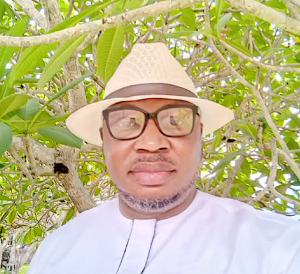How South Korea’s new president could shake up the region

Conservative Yoon’s main rival in the election, Lee, from the Democratic Party, had supported the kind of reciprocal, trust-based engagement sought by Moon. Yoon, by contrast, has promised to build up South Korea’s military, even hinting that he would launch a pre-emptive strike if he saw signs of an offensive launch against Seoul.Throughout his campaign, Yoon has slammed the Democratic Party’s “subservient North Korea policy,” vowing not to ease sanctions or prepare a peace treaty until the North “makes active efforts in complete and verifiable denuclearization.”Speaking in Seoul on January 24, Yoon added that the door to diplomacy and dialogue will “always be left open” — but that he would pursue a peace that is “based on strong national defense posture, not of submission.””We will build a powerful military force that can assuredly deter any provocation to protect the safety and property of our citizens and safeguard the territorial integrity and sovereignty of our nation,” Yoon said. But experts warn this harder line could see relations worsen between the two countries. Some fear military tensions could return to the crisis levels seen in 2017, when North Korea’s aggressive weapons testing and advancement prompted US-South Korea shows of military force, as well as a threat from then-US President Donald Trump to unleash “fire and fury like the world has never seen.”Cheong, from the Sejong Institute, said it seemed clear that Yoon’s election would cause inter-Korean relations to “return to the hostile relationship of the Cold War era.” The US-China tightropeYoon’s win will also likely shift South Korea’s relationship with two feuding global superpowers: the US and China.For years, the country has walked a tightrope of a close security alliance with the US, and a growing economic relationship with China — but “the time and period for that kind of tradition is ending,” said Kim Jiyoon, research fellow at Sogang University’s Institute of Social Sciences.While Lee suggested he would try to balance both partnerships, Yoon has made clear which he will prioritize.”South Korea and the United States share an alliance forged in blood as we have fought together to protect freedom against the tyranny of communism,” Yoon said in January, adding that the country must “rebuild this alliance.”As part of this push, Yoon has suggested he would seek the installment of a second anti-ballistic missile system — which would undoubtedly provoke fury from China. South Korea first announced in 2016 it would deploy the US-built Terminal High Altitude Area Defense (THAAD) defense system to defend against North Korean missile threats. That sparked Both leading presidential candidates leaned into the issue, with Lee voicing support for women’s rights while Yoon actively courted votes among anti-feminists. One of Yoon’s major campaign promises was to abolish the Ministry of Gender Equality and Family — claiming it is unfair to men. He also promised to raise the penalty for falsely reporting sex crimes. CNN approached Yoon’s office for comment on his gender policies but did not receive a response.Anti-feminists have made themselves a powerful voting bloc in South Korea. Last April, Moon’s Democratic Party lost mayoral elections in both Seoul and its second largest city Busan, with exit polls showing young men in their 20s had overwhelmingly shifted their vote to Yoon’s People Power Party.As the election approached, some worried that if Yoon won, gender divisions could widen even further, and the women’s rights movement could be set back.”The gender gap is the widest among the young generation,” Kim said. “If you go up to the older generation, it’s actually converging, but it’s the widest and the most divergent between young females and young males.”







